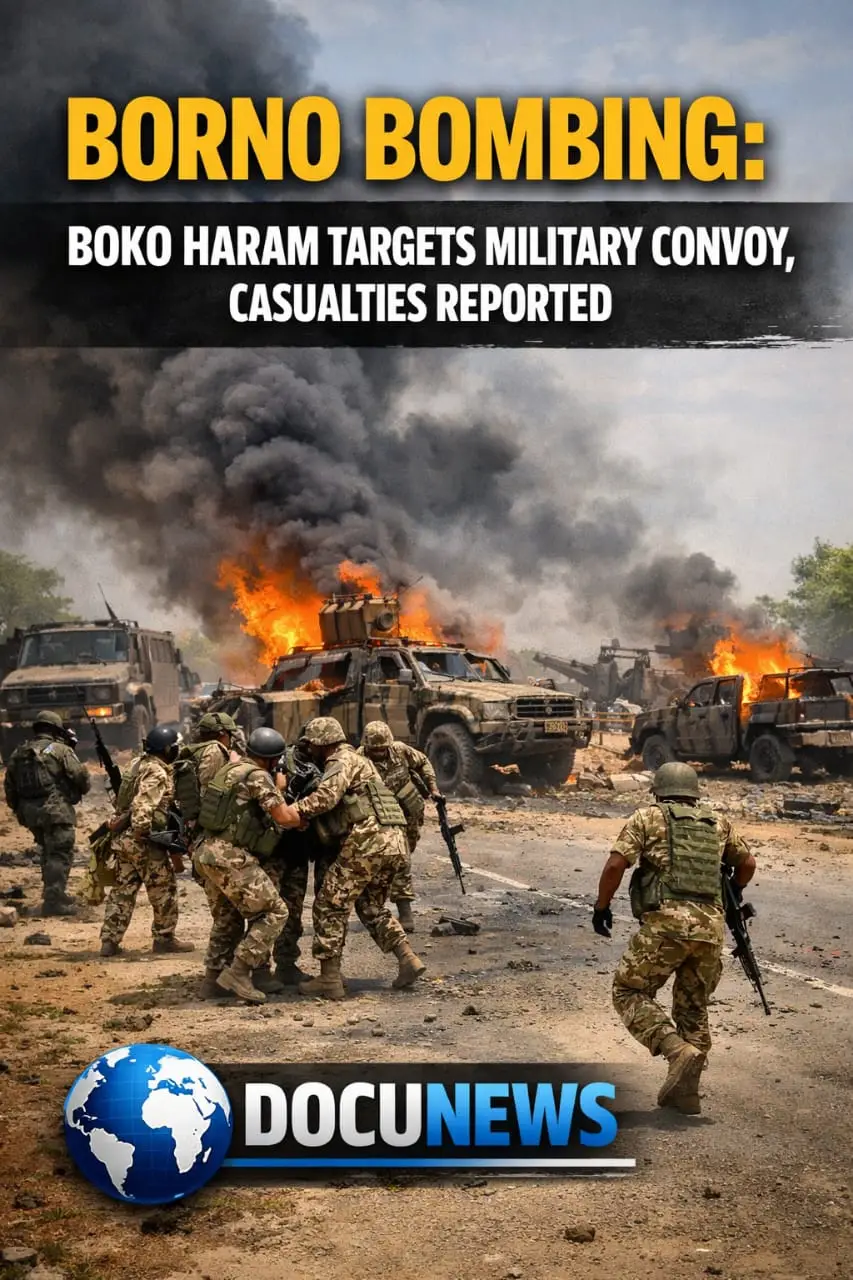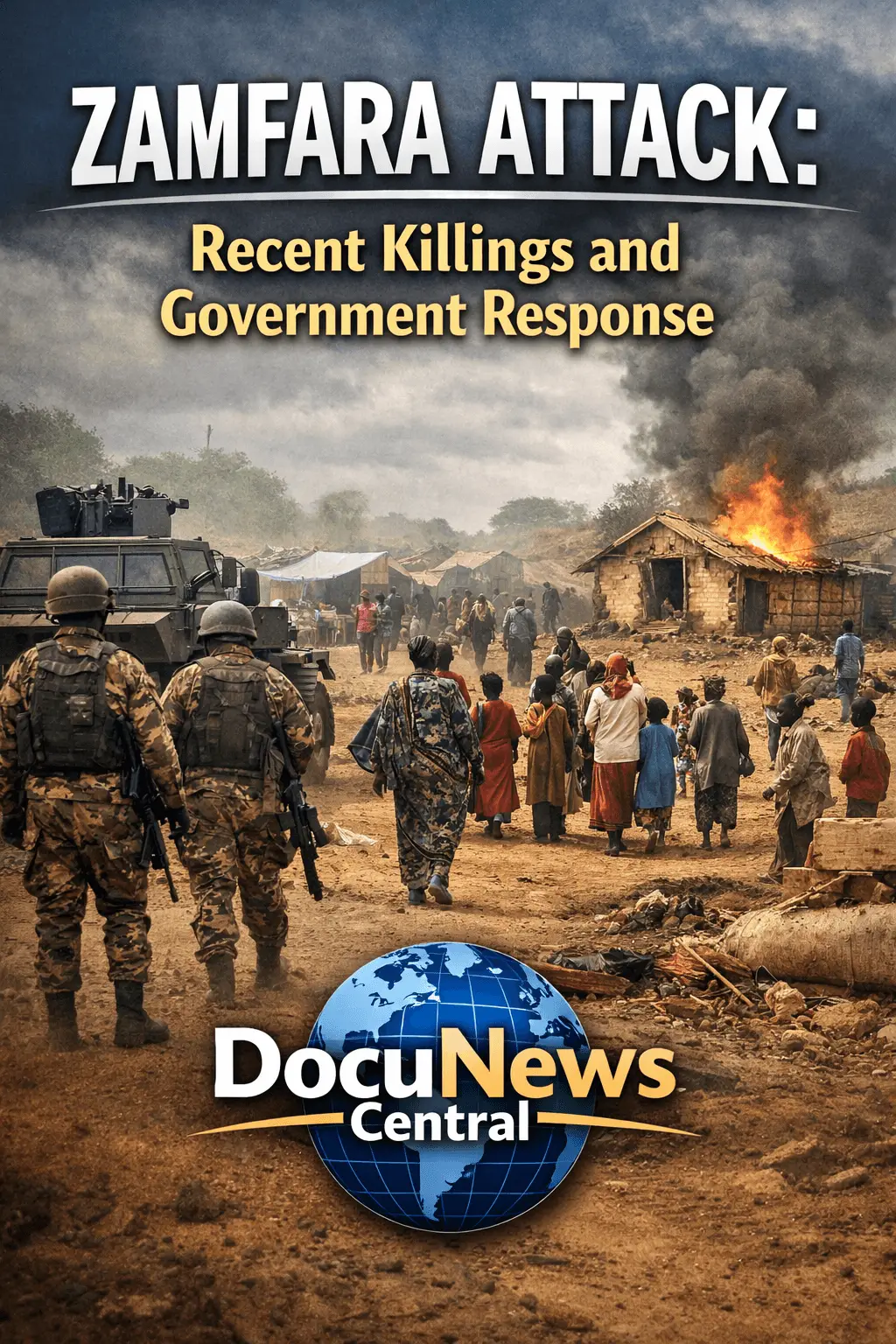
Introduction
Nigeria woke up to another tragic security story. An elite convoy of the Nigerian Army was ambushed by ISWAP fighters in Borno State. The attack led to the kidnapping of a serving Brigadier General, who also serves as a brigade commander. Several soldiers and Civilian Joint Task Force (CJTF) members were killed.
This incident unfolded despite continuous government statements insisting that terrorism has been defeated. Officials have repeatedly told citizens that bandits have been crushed, insurgents have lost ground, and the nation is safe again. Yet, as we saw in the recent DSS recapture of a wanted terrorist, the brutal ambush paints a different picture.
This event raises serious questions about security. If a senior military commander can be abducted in broad daylight, then what chance does an average citizen have? Many Nigerians are now asking the same question: Is the government telling the truth about security?
A Deadly Ambush That Shook the Nation
The convoy was on a routine movement through one of the volatile corridors in Borno. ISWAP militants, who have been active despite government reassurances, launched a coordinated attack. They used explosives, heavy weapons, and motorcycles to surround the military vehicles.
This attack shares similarities with other rising insecurity incidents discussed in the report on Wike’s recent security controversies. Again, the attackers had the advantage of surprise.
After a fierce gun battle, the militants overwhelmed the convoy. Many troops were killed instantly. Some were wounded. Members of the Civilian JTF who supported the army also fell.
However, the greatest shock came from the kidnapping of the Brigadier General in charge of the brigade. His abduction represents one of the most embarrassing blows the Nigerian Army has suffered in recent years.
A Kidnapped General: What This Means for National Security
This incident is more than a tragedy. It is symbolic. It sends a message that Nigeria’s enemies are not defeated. Instead, they remain bold, active, and capable of striking even the most protected figures.
A Brigadier General is not an ordinary officer. He commands respect and authority. He controls operations. He is protected. Yet ISWAP successfully captured him.
This raises serious concerns:
- If highly trained officers are not safe, who is?
- If terrorists can outsmart a military convoy, what can they do to unarmed citizens?
- If a General can disappear into the hands of insurgents, what hope is left for farmers, traders, or travelers?
As ex-COAS Buratai highlighted in his recent statement on security breakdowns, Nigerians are living through a period of serious instability.
Government Claims vs. Harsh Reality
For years now, government officials have maintained that terrorism has been crushed. They say banditry is gone. They insist that insurgents no longer control any territory. However, events like this tell another story.
The government repeatedly rejects foreign assistance. This pattern is similar to what was discussed in the analysis of the U.S. draft plan for airstrikes in Nigeria, which Nigerian authorities strongly resisted.
Yet this single incident shows the deep cracks in the security system. A military convoy should not fall so easily. A General should not vanish without a trace. And soldiers should not be ambushed with such precision.
Despite these assurances, Nigerians are still running from violence. Families still bury loved ones. Communities still live in fear.
Why This Attack Happened Despite Claims of Victory
- Insurgents Have Adapted
Their methods mirror earlier tactics observed in the DSS terrorist recapture case. - Limited Surveillance
Large forest areas remain unmonitored. - Insufficient Equipment
Troops continue to lament outdated weapons. - Corruption Challenges
Funds meant for weapons and welfare often disappear. - Political Messaging
Similar patterns can be seen in stories involving high-level political disputes like Wike’s recent controversy with ex-CDS Irabor.
Impact on the Morale of Nigerian Soldiers
Soldiers serve with commitment, but attacks like this weaken morale. Losing a senior officer affects everyone emotionally and psychologically.
The death of fellow soldiers also reduces trust in intelligence reports. If ISWAP could plan such a massive attack, then someone failed to provide accurate information.
The military is under constant public criticism, as seen in Buratai’s reaction to the clash involving Wike and a soldier.
What Nigerians Are Saying
Across social media and community groups, Nigerians are expressing shock and frustration. Many believe the situation is far worse than the government admits.
For many Nigerians, this incident reinforces what was previously discussed in the U.S. airstrike planning analysis—that insecurity remains deeply rooted.
- “If a General can be kidnapped, what about ordinary Nigerians?”
- “The government should stop pretending that insecurity is over.”
- “We need external support before it is too late.”
- “Soldiers deserve better equipment.”
Why the Government Rejects American Intervention
Officials claim that Nigeria does not need foreign boots on the ground. However, critics point to previous government responses such as those outlined in the American airstrike proposal story.
Many fear that rejecting external help gives insurgents more room to operate.
How ISWAP Uses Propaganda to Gain Strength
ISWAP understands the power of fear. Kidnapping a Brigadier General boosts their confidence and weakens trust in the government.
This form of psychological warfare mirrors similar information tactics seen in other extremist activities reported previously, including the DSS terrorist recapture case.
Urgent Steps Nigeria Must Take Now
- Strengthen Intelligence Networks
- Improve Soldier Welfare
- Embrace International Collaboration
- Equip the Army Properly
- Engage Local Communities
- Improve Transparency
Internal Links (As Requested)
- Wike in Fresh Trouble as ex-CDS Irabor pick fault
- DSS Recaptures a Wanted Terrorist
- Ex-COAS Buratai Speaks on Wike’s Clash With Soldier
- US Draft Plan for Airstrikes in Nigeria
Conclusion
The kidnapping of a Brigadier General is not a small incident. It is a national alarm. It shows that ISWAP remains strong and dangerous.
It also reflects the same troubling trends highlighted in previous reports like the DSS recapture of a terrorist and Wike’s security disputes.
This attack should be a turning point. The government must face the truth. Security must become a priority.
If a top military commander can be abducted, what hope is left for the common man? read more about insecurity here Over 7,000 Nigerians Still in Terrorists’ Captivity Across Seven States at docunewscentral.com










